Andrew has been an artist, botanist, filmmaker, musician, theatrical producer and for the last 12 years, Outreach Manager at the UK's National Physical Laboratory (NPL). Much of his professional life was spent as a metrologist (measurement scientist) working in the ‘Quantum Metrology’ group as a senior researcher. Managing the explaining of NPL’s science to the masses has included overseeing and judging many film, poster and essay competitions. He has won awards for his own educational filmmaking work. In 2019 he received an MBE for services to STEM education.
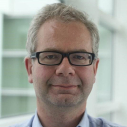
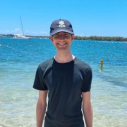
Charles Woffinden is an experimental physicist at The University of Queensland and the Australian Research Council Centre of Excellence for Engineered Quantum Systems (EQUS), where he conducts research on Bose–Einstein condensates and emerging quantum technologies. He previously worked for a decade in the space industry developing imaging systems for satellites and space telescopes. He holds a PhD in nanophysics.
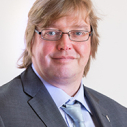
David is a Professor of theoretical physics at the University of Otago and was, until April 2023, the founding Director of the Dodd-Walls Centre for Photonic and Quantum Technologies – a New Zealand national Centre of Research Excellence (CoRE). David is dedicated to educational outreach and the promotion of Physics and STEM more broadly. He has initiated and led a successful public engagement partnership with the Otago Museum – of which he Chair of the Board board – as well as with other museums, schools and agencies throughout New Zealand. He is a Fellow of the New Zealand Institute of Physics, a Fellow of the Institute of Physics (UK) and a member of the Institute of Directors of New Zealand and is seconded half time to NZ’s Ministry of Business, Innovation and Employment as a Science Advisor. His own research interests are eclectic, but include quantum phenomena in low temperature atomic physics, quantum information, quantum effects in biological systems and connections between quantum physics and number theory.
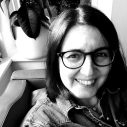
An archaeologist and evolutionary anthropologist by training, Georgia has spent over a decade working in professional research support. In early 2015, she joined the UK Quantum Communications Hub as its project manager and caught the quantum bug, an experience which made her question her life choices yet again, convinced her that a lot of fun could be had by paying more attention to physics classes at school and confirmed her suspicion that she was really a cat rather than a dog person. Obsessed with stories since her pre-literacy years, Georgia would still rather be spending any spare time reading - mostly fiction, memoirs and literary criticism publications, while also consuming big chunks of internet culture literary offerings, mainly in the form of podcasts, blogs and BookTube videos.
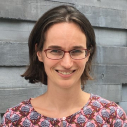
Jenny is the manager of outreach and media relations at the Centre for Quantum Technologies in Singapore. She has led the organisation of the Quantum Shorts contests since they began in 2012. Earlier in life, she studied physics at the University of Cambridge and worked as a science journalist in the UK for publications including Nature and New Scientist.
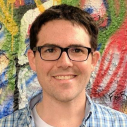
John is the Scientific Outreach Manager at the Institute for Quantum Computing at the University of Waterloo. John's job is to take university research out of the labs and off the whiteboards and make it accessible to students and teachers across Canada. John holds a PhD in Physics from the University of Waterloo, with a research specialization in single- and entangled-photon sources, ultrafast measurement, and quantum nonlinear optics.
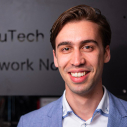
Kian obtained his Master's degree in Applied Physics at the TU Delft. During his studies he co-founded the Delft Hyperloop team where he designed and built its signature magnetic levitation system, leading it to a championship victory in Elon Musk's ‘SpaceX Hyperloop Pod Competition‘ in 2017. Following this, he worked at Microsoft's Quantum Architecture department as Research Intern in 2018 after graduating at QuTech on the development of a magnetic field insensitive superconducting qubit. Now, Kian is building the world's first metropolitan scale Quantum Internet in the Hanson lab, extending the success of the nitrogen-vacancy centers in diamond as quantum network nodes with quantum frequency conversion to use readily available deployed fiber for communication. He aims to demonstrate a scalable and reliable hardware platform as the start of a future European Quantum Internet. Kian is also one of the QuTech Speakers. He gives talks to various audiences of all backgrounds and is often requested to appear on podcasts and TV shows. Next to this, he is one of the Faces of Science appointed by the KNAW (Royal Netherlands Academy of Arts and Sciences). In this role he explains through blog posts and public appearances what it is like to be a scientist. In his free time he is an active visual media consumer, from informative YouTube videos to award winning movies and guilty pleasure reality TV shows.
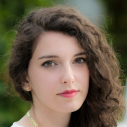
Mariagrazia is an experimental quantum physicist. She graduated in Rome, Italy where she worked on Boson Sampling implementation. Currently, she is a Ph.D. student at QuTech in Delft, in the group of Prof. Ronald Hanson. Her work is focused on the development of a Quantum Internet stack using NV centers in diamonds as quantum processors. When she is not in the lab, she is also a movies and series enthusiast and believes that this form of art can naturally connect people with different interests.
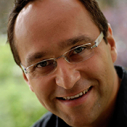
Michael, who holds a PhD in quantum physics, is an author, journalist and broadcaster. He is a consultant at New Scientist and the author of numerous books including The Quantum Astrologer’s Handbook, Hollywood Wants to Kill You and the bestselling non-fiction title 13 Things That Don't Make Sense. He co-hosts the award-winning podcast Science(ish), which delves into the science behind popular culture.
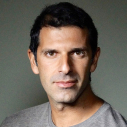
Spiros grew up in Greece, solving math puzzles and playing video games with his brothers. After high school, he moved to Boston to study Math and Computer Science at MIT, before coming to sunny California for his PhD in Applied Mathematics at UC Davis. He is now at Caltech, where he splits his time between research on theoretical quantum physics and outreach for the Institute for Quantum Information and Matter. In the academic world, he is best known for his work on the Quantum Hall Effect. He was a scientific advisor for the film Ant Man and is one of the creators of qCraft for Minecraft, a mod that brings the principles of quantum physics to the Minecraft game. He was also the instigator of the short film Anyone Can Quantum (2016), a viral hit that featured a quantum chess match between Stephen Hawking and Paul Rudd.
